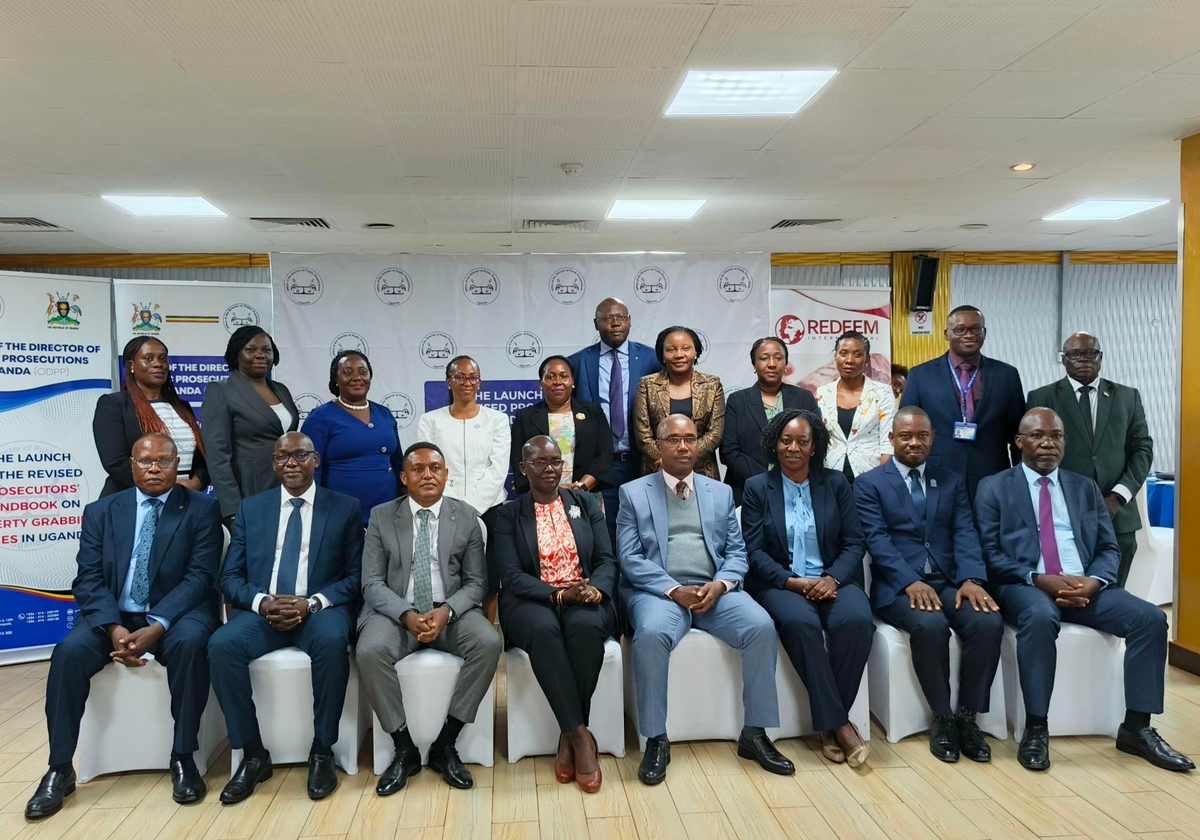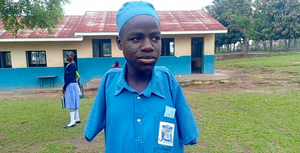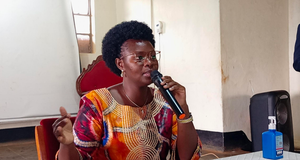
The Office of the Director of Public Prosecutions (ODPP) has introduced a Revised Prosecutors’ Handbook on Property Grabbing Crimes (2025), aimed at improving the prosecution of property-related offenses that continue to target widows, orphans, and other vulnerable groups across Uganda. The launch took place in Kampala on Monday, led by the Director of Public Prosecutions, Lady Justice Jane Frances Abodo.
Developed in collaboration with Redeem International and the International Justice Mission (IJM), the updated guide serves as a practical reference for prosecutors and investigators handling cases of land and property grabbing. Justice Abodo described the publication as an essential step toward ensuring justice for victims often preyed upon by influential individuals who exploit families following the death of a parent or spouse.
“For too long, widows and orphans have lived in fear of losing their homes and land to ruthless grabbers. This handbook equips our prosecutors with the tools they need to administer justice swiftly and fairly, protecting those who can no longer protect themselves,” said Abodo.
The 2025 edition replaces the earlier 2017 version and reflects recent legal reforms and judicial interpretations. It brings together critical legislation such as the Penal Code Act, Land Act, Succession Act, and Administrator General’s Act into a single, accessible volume. Notably, it incorporates amendments to the Succession Act that now criminalize offenses including the fraudulent disposal or mismanagement of estate property, failure to return revoked letters of administration, and unlawful interference with estates before a grant is issued.
The handbook also reflects expanded provisions under the Domestic Violence Act, which now classifies economic violence—including financial deprivation, exploitation of property, and denial of access to family assets—as a form of domestic abuse. Justice Abodo encouraged prosecutors to apply these provisions in cases where property grabbing occurs within family or intimate settings.
Recognizing the heavy workload of the ODPP’s Land Crimes Department, which handles about ten new land-related cases every day, Justice Abodo commended the team’s commitment to justice. “Despite your heavy workload, you have taken time to develop a tool that will guide prosecutorial discretion and facilitate justice,” she said.
She further acknowledged the contributions of legal officers who helped refine the concept of land crimes, noting that their input would also support judicial officers in adjudicating such matters. The handbook features real-life case studies drawn from recent court files and includes a practical section—Chapter 10: “The Prosecutor’s Go-To Guide”—which addresses common challenges such as differentiating between civil and criminal issues, countering claim-of-right defenses, and resolving evidentiary difficulties.
Another highlight is the Property Grabbing Offenses Chart, a concise reference summarizing offenses, statutory provisions, elements, and penalties to aid prosecutors in drafting charges and preparing for trial. Justice Abodo, who was recently appointed Principal Judge, urged prosecutors and investigators to implement the handbook’s guidelines diligently and remain steadfast in protecting Uganda’s most vulnerable citizens.
“This handbook will not only make prosecutors’ work easier, but it will also serve as a shield for the poor and a symbol of justice for those who have suffered in silence,” she said.
Juliet Nafuna Musoke, National Director of Redeem International, reaffirmed her organization’s support for the ODPP’s efforts to hold land grabbers accountable. She emphasized that Redeem’s approach focuses on deterrence through effective prosecution.
“We believe that the effective prosecution of land grabbing creates deterrence. When the risk of committing the crime outweighs the benefit, offenders will think twice. This handbook is a one-stop resource that empowers prosecutors to bring such offenders to justice efficiently,” said Musoke.
She added that the resource was designed to ease prosecutors’ workload by consolidating relevant laws in one place, enabling them to prepare strong cases without consulting multiple legal texts.
Principal Assistant Director of Public Prosecutions Andrew Odit noted that addressing land crimes requires coordinated efforts between state agencies and development partners. He warned that such crimes continue to threaten community stability and that many widows and orphans still live in fear of eviction or loss of property. Odit stressed that effective land crime management is crucial to preserving social and economic security.
He explained that the Land Crimes Department, formed in 2013, leads the investigation and prosecution of land-related offenses and works closely with partners such as IJM and Redeem International to strengthen accountability and justice delivery. The release of the revised handbook, he said, marks a significant advancement toward protecting citizens’ rights and enhancing institutional cooperation.
During the launch, legal consultant Ritah Asiimwe, who participated in revising the handbook, expressed optimism that it would help end impunity and ensure that perpetrators of land theft face justice. Currently, land disputes constitute the largest portion of Uganda’s court backlog, with thousands of unresolved cases pending nationwide.
URN













The Sunrise Editor
Leave a Comment
Your email address will not be published.